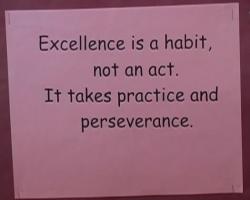Let me begin by saying I’m not writing this as if I have overcome all the challenges associated with being a Christian. Nor do I want to approach this topic with a “holier than thou” attitude, but not to be open and honest about this critical issue would be unwise and unbiblical. I also believe that instead of continually bashing Hollywood, Christians should pray for the industry and seek to change the quality of the programming. Hollywood is a mission field that needs prayer more than protest.
Some time ago, I was disheartened to read an article in a major newspaper titled: “Values Message Vanishes on Tube.” The article suggested those who voted for President George W. Bush because of moral values apparently were not embracing those same values at home when considering what they viewed. What was defined as pornography a few decades ago now fills our television screens on a nightly basis; what a sad testimony to the world. As W. Graham Scroggie said, “Light and darkness, right and wrong, good and evil, truth and error are incompatibles … when they compromise it is the light, the right, the good, and the truth that are damaged.”
The biggest danger to the evangelical church is not false religion or atheism, but compromise; it always has been a tool of the enemy. When compromise occurs, we can have church growth but no depth; numbers, but no character; enormous buildings, but small hearts. We “play” Christian, but have the tendency to compromise everything for which Christ stood. We have riches, wealth, and prosperity, but neglect the weightier matters: love, mercy, and forgiveness. When compromise reigns, we easily can become insensitive, indifferent, ineffective, unforgiving, unloving, unmoved, and self-righteous. “Where does Christianity destroy itself in a given generation? It destroys itself by not living in the light, by professing a truth it does not obey” (Tozer). (See
It’s never my goal to criticize fellow Christians. As a matter of fact, I’m extremely grateful for the many spiritual leaders and friends who have positively influenced me. There is, however, a very troubling trend toward moral compromise in the evangelical church. I’ve witnessed soft porn images on Christian websites, questionable movie clips during PowerPoint sermons, and youth pastors talk about their favorite sexually charged TV show with the youth—all under the guise of “relating” to the culture.
A few years ago, I attended a youth conference. Although the conference was for young women, there were male volunteers present, as well. The conference speaker began by showing sexual images on the large screen in the church. These images were taken directly from music videos and magazines, and from CD and DVD covers. As I looked up, I saw a cross on one side of the building and a clip of a sexually explicit music video on the other. The speaker showed clip after clip of these images; she wanted to create shock value. Although she had a very good message and appeared extremely sincere, I believe her message was compromised. It’s hard to justify having the cross of Christ on one side of the church and those types of images on the other. In my opinion, the light, the right, the good, and the truth are damaged. The church should not reflect or imitate the world, but lovingly confront it.
Again, my intent is not to criticize; I’ve made many mistakes in this area, as well. My comments are intended to challenge all of us.
This excerpt was taken from What Works for Young Adults—Solid Choices In Unstable Times, pp. 169; 2007 by El Paseo Publications.




